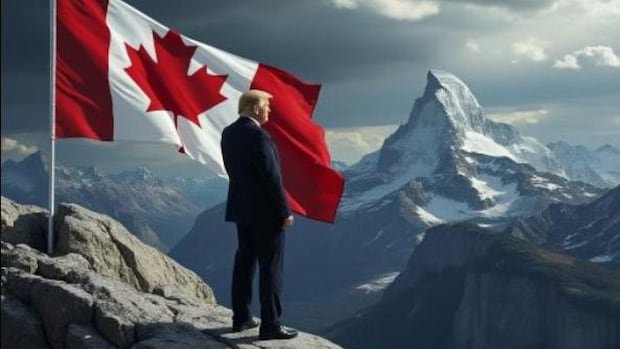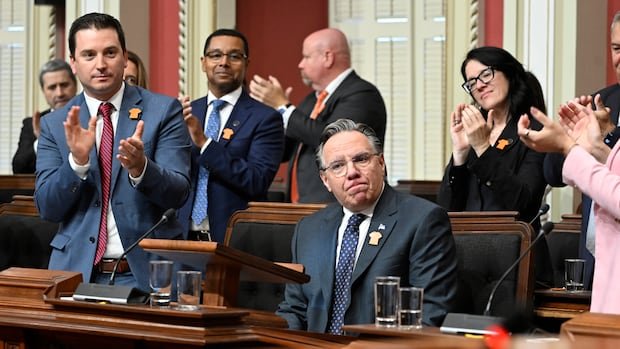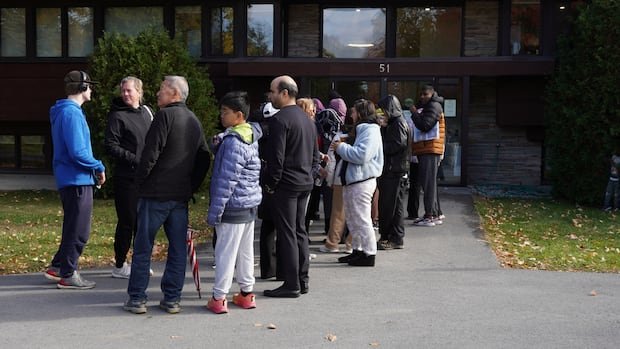In January 2017, Donald Trump signed an executive order that Banned immigration to the United States from seven Muslim-majority countries.. Amid the ensuing turmoil, Justin Trudeau posted a message on Twitter.
“To those fleeing persecution, terror and war, Canadians will welcome you, regardless of your faith,” he wrote. “Diversity is our strength #WelcomeToCanada.”
Trudeau’s tweet was considered relatively provocative at the time. And later, when asylum seekers began arriving in Roxham Highway In greater numbers, the general opinion was that the prime minister’s message was a blunder. Either he had invited the influx of people or the challenge of dealing with that wave of newcomers had proven his tweet to be simplistic virtue signaling.
But haggling over the tactical value of the message risks overlooking the basic principle that was being conveyed: Canada does not discriminate against those seeking to immigrate to this country on the basis of religion.
The return of Donald Trump (and his jokes, if that’s what they are, about the 51st state) will likely provide new opportunities for Canada to decide how much and how strongly it wants to differentiate itself from its neighbor. In the process, could Trump also end up recharging Canadian patriotism or nationalism?
As expected, Trudeau was asked about Trump’s 51st state comments during his two recent interviews with American media outlets. Unsurprisingly, Trudeau deemed the idea unworkable.
Prime Minister Justin Trudeau responded to threats from President-elect Donald Trump in an interview with CNN, saying that if he imposes tariffs, Canada would be forced to retaliate. The leader of the opposition, Pierre Poilievre, asked the government to be more forceful with the United States.
“Canadians are incredibly proud to be Canadians,” he said. he told CNN. “One of the easiest ways we define ourselves is, ‘Well, we’re not Americans.’ There’s such pride that that’s not really a problem.”
Arguably, it would be a problem if not being American was the basis of Canada’s self-image. But it’s not a bad place to start, and it has been, to some extent or another, since canada exists. And it could be especially useful now.
The big differences between Canada and the United States
As much as Canadians understand that they live in a different, sovereign country, it is worth highlighting some of the differences.
Consider, for example, Canadians’ views on the recent US presidential election. Support for Trump in Canada has increased over the past four years, but Environics found last fall that 60 per cent of Canadians still supported Kamala Harris, the Democratic candidate, compared to 21 per cent for Trump. (If Canada were a state, it would be the safest Democratic state by a wide margin, edging out Vermont, where Harris won by 32 points.)
Two years ago, Environics also asked Canadians and Americans about a series of social and political questions to compare answers. Those surveys found some notable differences.
Seventy-seven percent of Canadians strongly or somewhat agreed that the government should act to reduce the income disparity between rich and poor, compared to 58 percent of Americans. 82 percent of Canadians strongly or somewhat agreed that any woman who wants an abortion should be able to do so, compared to 62 percent of Americans. 61 per cent of Canadians agreed that it should be illegal for civilians to own firearms; only 29 percent of Americans agreed.
At issue this week: The prime minister appears on American television to reject Donald Trump’s growing threats against Canada. The Liberals are vying to take Justin Trudeau’s place as leader. And growing concern about foreign interference in the elections.
Whatever Trump’s penchant for annexation memes, a shrinking number of Canadians are interested in joining the United States. In 2022, Environment found that 83 per cent of Canadians strongly disagreed with the idea and another seven per cent somewhat disagreed. A new survey from the Angus Reid Institute, conducted earlier this month, similarly found that only 10 percent of Canadians supported the idea.
This is perhaps not surprising considering some of Environics’ other findings. In 1983, 83 percent of Canadians had a favorable opinion of the United States, but that opinion had fallen to 47 percent by 2024. And as Environics’ Andrew Parkin wrote this week, when Canadians were asked in 2021 to compare the two countries, a large majority of Canadians thought their country did better when it came to health care, quality of life, education , social security, government, individual attention. human rights and racial and gender equality. (The United States won in productivity and technology).
These findings could be contrasted with recent concerns that Canadians are feeling less proud of their own country.
Does Canadian patriotism need a boost?
Justin Trudeau is sometimes blamed for that decline; The theory is that the prime minister has spent too much time harping on Canada’s shortcomings and not enough effort to enthuse about Canada’s successes.
But that narrative is complicated by some of the available data. According to Environics, the most significant drop in pride has been among conservative voters, while the level of pride among liberal voters has been constant. Parkin also has suggested The decline is related to pessimism about Canada’s economic situation.
Still, perhaps Canadian patriotism could still use a shot in the arm, and perhaps that explains the positive online reaction to Jean Chrétien’s speech. recent pep talk in the pages of the Globe and Mail.
“To Donald Trump, from one old man to another: Shake your head!” he wrote. “What would make you think that Canadians would one day give up the best country in the world (and make no mistake, that’s who we are) to join the United States?”
In the space of 1,100 words, he used five exclamation points.
Donald Trump has repeatedly claimed that the United States is “subsidizing” Canada “to the tune of $100 billion.” Where does that number come from? And is Canada really getting a free ride from the United States? Andrew Chang delves into the math, money and politics of the Canada-U.S. trade relationship to find out how much (if any) of what Trump says is actually true. Images compiled from Reuters, Getty Images and The Canadian Press.
On the occasion of his 91st birthday, Chrétien paid tribute to the country he led for a decade, highlighting many of the things Canadians believe their country does better than the United States. But he also called on current leaders to build an even stronger and more resilient country in the face of threats from the south.
Trudeau’s final comments at the end of Wednesday’s first ministers’ meeting seemed to capture Chrétien’s vibe.
“Canada is a welcoming, inclusive, innovative and ambitious place. It is home to abundant resources, stunning beauty and a proud people who have come from all corners of the world to forge a nation with a unique identity worth embracing and celebrate,” he said. saying. “And it’s worth fighting for.”
The return of concern about American influence?
The reality of a Trumpian America could, as Chrétien suggests, prompt Canadian leaders to tear down interprovincial trade barriers, expand east-west electrical links, and bolster Canada’s military presence in the Arctic. And it could be a motivation to strengthen the institutions and values that distinguish Canada from its neighbor, including Canada’s parliamentary democracy.
Could it also lead Canadians to care more (or rather, again) about American economic or cultural influence?
in a essay in the New York Times in 1974 —titled “Canada Wants to Leave (the United States)”—Robert Fulford explained to Americans that “resistance to American domination and the assertion of a Canadian identity” had “become crucial elements in Canadian life.” Those feelings or concerns have arguably dissipated over the past 30 years: Environics has found that support for the North American Free Trade Agreement has actually increased over time.
But could Trump revive that spirit? Perhaps Ontario Premier Doug Ford showing up to Wednesday’s first ministers’ meeting wearing a hat that says “Canada is not for sale” is a sign of things to come.
Nationalism is a tense philosophy. It can lead to isolationism, jingoism and exclusion. In Canada’s case, aiming to simply be better or fairer than the United States could also breed complacency.
In canada alonepublished in 2023, Kim Nossal, a foreign policy expert at Queen’s University, speculated that Canada might have to worry about a further rise in the cross-border movement of the ideas of Trumpism. In response to events in the United States, Nossal added, Canada could also see a rise in anti-Americanism, which could further complicate relations between the two countries.
But if American democracy continues down a dark path, not being American could be more than an argument against annexation. In that case, as Rob Goodman, author and professor of politics and public administration at Metropolitan University of Toronto, has pointed out written“Canadian distinctiveness” might not be an “object of vanity” but an “essential safeguard of Canadian democracy.”










